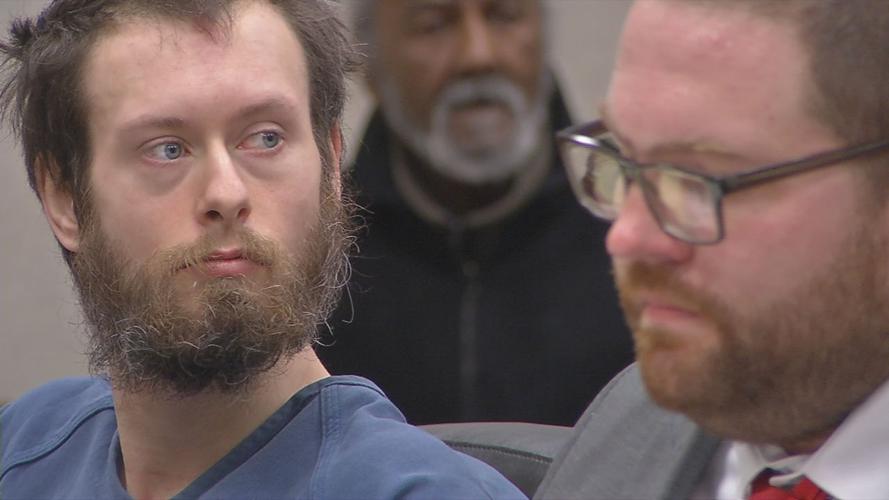LOUISVILLE, Ky. (WDRB) -- A Louisville judge ruled that some court documents will be opened to the public in the case of Cane Madden, whose history of walking free after allegedly committing violent crimes prompted a change in state law.
In June 2021, Jefferson Circuit Court Judge Annie O'Connell ruled that public and media access to documents that will determine Madden's status, including possibly whether the new law applies to him, would remain closed at the time.
However, O'Connell also noted "there may be a point in the case where documents and hearings would be made available to the public."
Attorneys for WDRB filed a motion last year asking her to reconsider based on a ruling from the Kentucky Supreme Court involving access to records involving commitment hearings.
On April 14, O'Connell issued an order that within 10 days, any documents addressing constitutionality or statutory challenges of the law in the Madden case be opened to the public.
The names of any other similar defendants who are also fighting the constitutionality of the law will be redacted, according to the order.
"We're glad those arguments are going to see the light of day and people can see for themselves whether that law is constitutional or not," said First Amendment Attorney Mike Abate, who represents WDRB News.
In September 2022, the Kentucky Supreme Court heard arguments on the constitutionality of the law, which allows indefinite hospitalization of defendants who are too mentally ill to stand trial and also fail to meet criteria for involuntary hospitalization.
But the high court ruled that it was premature for justices to decide the constitutionality of the so-called "Cane Madden law" because the Madden case and one like it have not concluded.
Attorneys for the Louisville Metro Public Defender's office argued that locking up Madden for an unspecified amount of time without a guilty verdict is unconstitutional and his case should move forward under a different law where he could be confined for no more than 360 days.
And Madden may not even be subject to the new law depending on whether it is found to be retroactive.
However, the justices ruled that while the "issues raised in these matters are serious and deserving of constitutional review," the cases must be concluded before the appeal process can begin.
During the Sept. 14 arguments, Michael Wajda, with the Attorney General's office, said the state's interest is "ensuring treatment for these individuals as well as protecting public safety" rather than just letting them go free because of a loophole in the system.
Madden was charged with the August 2019 beating and rape of a Louisville child until he was found mentally incompetent to stand trial. He also failed to meet Kentucky's criteria for involuntary hospitalization.
In multiple instances in the past, Madden has been found incompetent and failed to meet this mental health criteria — meaning he repeatedly walked free — dodging both incarceration and mental health treatment.
He is currently at KCPC.
On April 1, 2021, Gov. Andy Beshear signed a bill into law that patched that gap in state law.
Under the new law, a defendant found incompetent has an evidentiary hearing, in front of a judge, to determine if there is a probability the person committed the crime. The defendant will have an attorney for this hearing.
If a judge finds there is a preponderance of evidence of guilt, there will be another hearing to determine whether it is in the best interest of the defendant and the community for the person to be involuntarily hospitalized using four new criteria:
- The respondent presents a danger to self or others as a result of his or her mental condition
- The respondent needs care, training, or treatment in order to mitigate or prevent substantial physical harm to self or others
- The respondent has a demonstrated history of criminal behavior that has endangered or caused injury to others or has a substantial history of involuntary hospitalizations under KRS Chapters 202A or 202B prior to the commission of the charged crime; and
- A less restrictive alternative mode of treatment would endanger the safety of the respondent or others
If the defendant is hospitalized, a judge would periodically review the status of the person.
Copyright 2023 WDRB Media. All Rights Reserved.


















